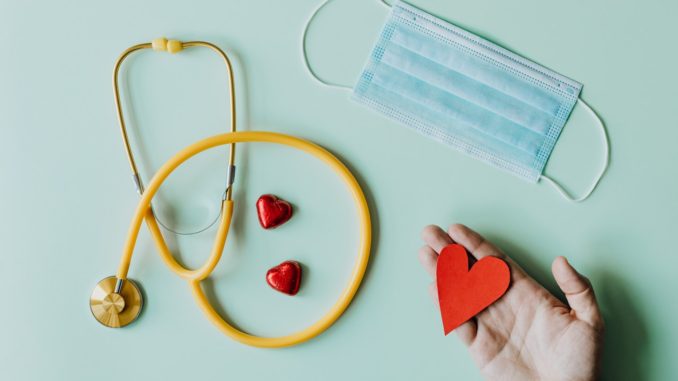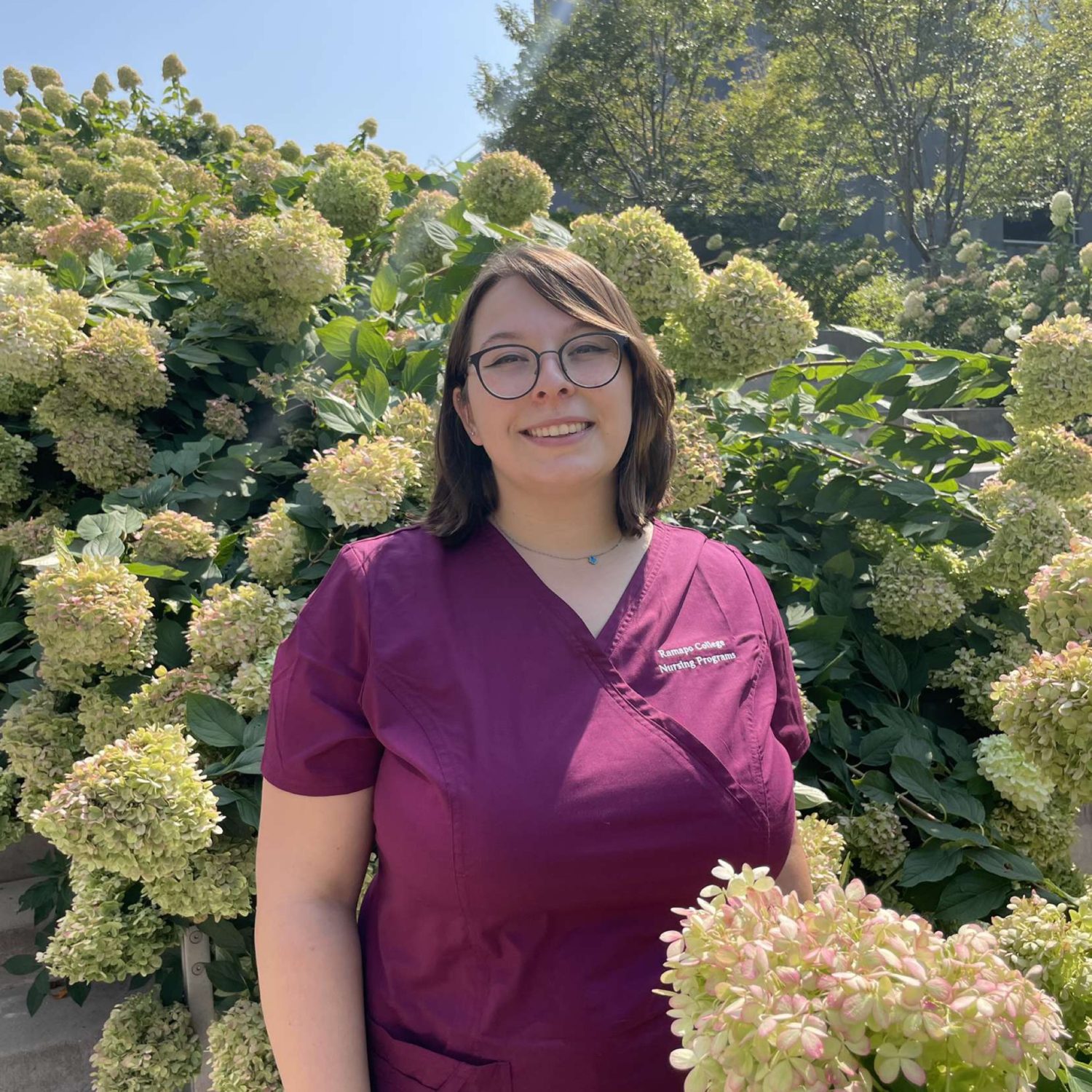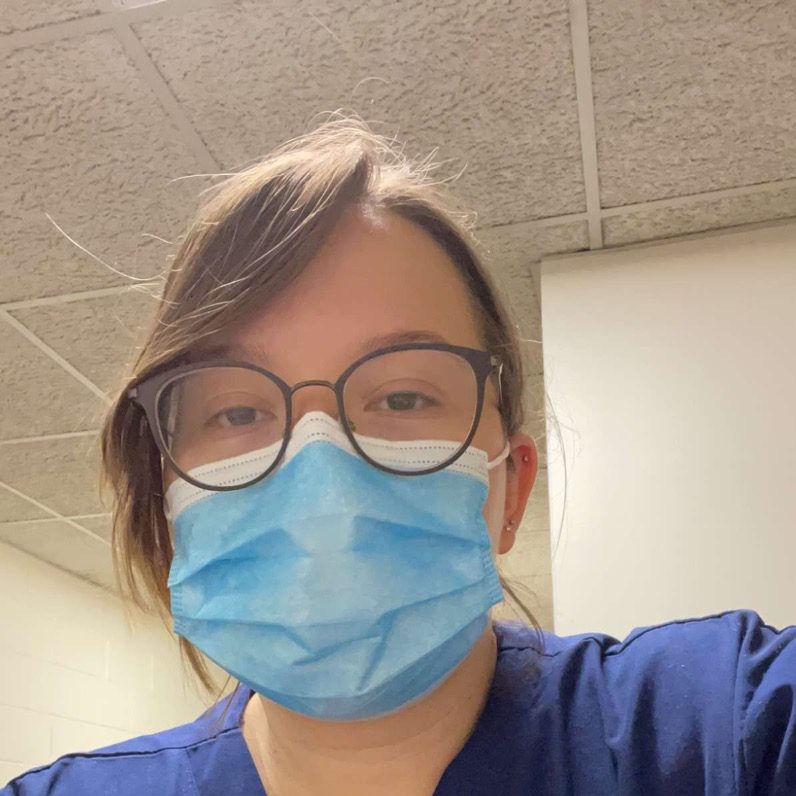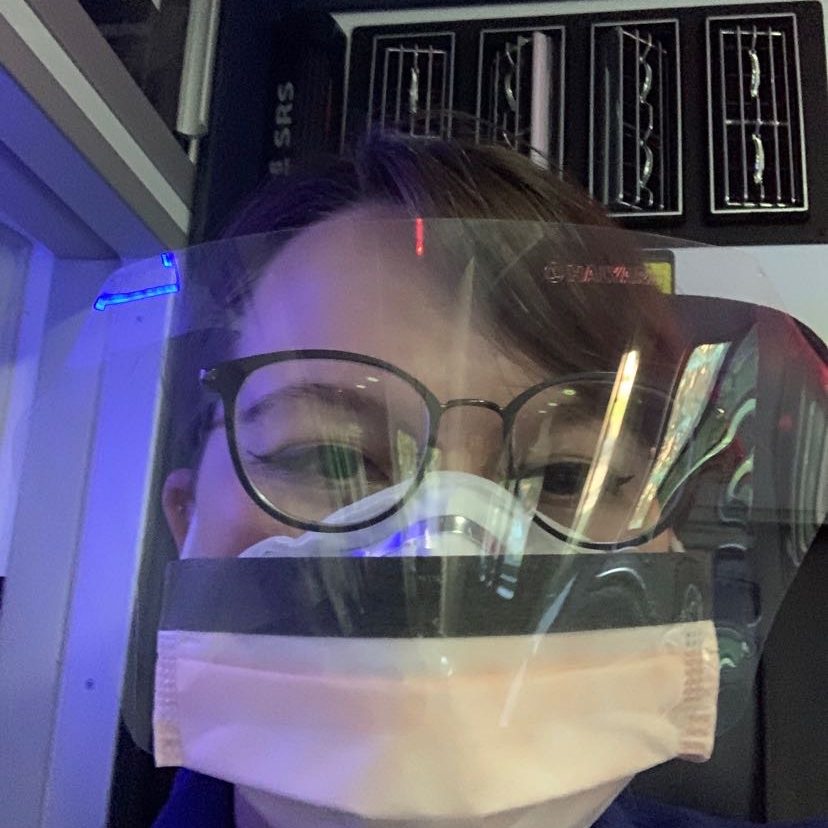
By KELLY BRENNAN
When the global pandemic broke in early 2020, healthcare professionals felt the brunt of COVID 19’s impact. Overburdened with sick patients, low on personal protective equipment, and lacking resources to save many patients due to unavailable ventilators and beds, healthcare workers got hit hard.
Lack of PPE and medical equipment is effecting the front line of combating COVID-19..
Nurses and doctors are dying because they can’t keep themselves safe!!!
WHERE IS THE PPE?!
HOW MUCH LONGER?! #OneVoice1#wtpTEAM https://t.co/ULL06eGXH3— Mrs HIG RN Vaxxed X 3 Diehard Dem ???? ? (@hig68) March 30, 2020
It was during the height of the 2020 Covid-19 pandemic that Juliana Edelman, 21-year-old resident of New Jersey, decided to pursue nursing. The national COVID cases surpassed 100,000 about three weeks into the pandemic on March 28, 2020. Now, in 2022, New Jersey alone has had over 2 million cases of COVID. Edelman has been studying at Ramapo College of New Jersey since fall of 2019 to be a registered nurse and has been working in multiple healthcare roles throughout the pandemic.
A Young Nurse’s Journey
Edelman knew she wanted to be a nurse at the end of her junior year of high school in 2018. She knew that she always wanted to work with people and to make the world a better place. She became a certified CPR lifeguard and took anatomy and physiology in high school, and continued up to become an EMT in Mahwah and working in the healthcare system. She has responded to emergency cases as an EMT such as an overdose case of a young man on heroin and a cocktail of other drugs.
She says that high school “was when I knew I could do this, and that this is what I wanted to do. To see the terrifying and help […] people in their time of need!”
My team is dying
My patients are dying
I just want to retreat retreat retreat
and I can’t.— Nurse Natalie ? (@NurseTalie) April 29, 2020
Although she never experienced anything other than a COVID world in her healthcare career, Edelman says she is motivated.
“I continue on because I know that I am making a positive difference in the world, one patient, one family, one unit at a time […] [and that] has pushed me to continue learning and working throughout the pandemic,” Edelman says.
Even with all of the negative aspects of her job that she has faced, Edelman never once considered changing her profession during the pandemic. In fact, it made her even more sure that she wanted to be a nurse. She describes the poor work conditions, understaffing, little pay, lack of resources and negative media coverage saying that the odds were stacked against nurses.
“Nursing school did not stop moving forward, and I continued moving with it. If I could learn to be a nurse through this, I could do anything in my career. It was even more important during the pandemic for me to continue on this path and help in any way that I could,” Edelman says.
She recalls her journey through her career since 2020 saying that, at first, she started as an EMT observer, then completed EMT training, and then over the summer of 2020 she worked on the COVID floor of St. Peter’s Hospital in New Brunswick almost every day.
“Usually I had 20 patients with only one tech (which was me), so it was a lot. They all had highflow oxygen on and could barely breathe. I lost a few patients. I had many healthcare roles during this pandemic and each one has only encouraged me to continue on this career path and help those in need,” she says.
Now, in 2022, Edelman’s routine is different. As she gets further in her studies, she has less time for work. She used to “ride” with the EMT squad on duty for six hours every week but now that she’s further in her schooling her workload has become too much so she only rides about once a month. Edelman spends about 25 to 30 hours a week studying and works over school breaks when she can. She has two semesters left in her nursing schooling and will graduate in spring of 2023.
Older Nurses to New
When Linda Cardozo became a nurse in 1979, she faced similar conditions of Edelman’s lack of resources and understaffing in the NICU wing where she worked her whole career. She worked in Manhattan and understands what it feels like to be overwhelmed with the feelings of anxiety and stress.
She knows what she would say to those who are on the healthcare force now in 2022: “I completely appreciate your efforts to do what you have been trained to do, under circumstances which make it impossible to do so. I hope you have received some of the emotional support you need, even without the time to get it,” says Cardozo. “It’s so hard to not express the fear, exhaustion and feelings of helplessness that you have endured […] No other nurse has experienced exactly what you have because they’re not you.
“Nobody, therefore, can judge you for quitting, staying, crying or not crying at all. Talk about your experiences and feelings with others who can hear you,” adds Cardozo. “Tell them if you need opinions and advice, or need only to be heard. Give yourself credit for having done your very best. Get any and all the extra help you need for as long as you need it. Be where you feel most loved and free to be yourself.”
Similar to Cardozo, Edelman knows what she would say to her fellow healthcare workers during this time: “Thank you for all that you do. We see you, we hear you, we understand. Thank you for continuing on when it seemed hopeless. You deserve better pay, better resources, better treatment, better staffing, better hours, better everything. Thank you for accepting me, teaching me, and encouraging me to be a part of your community. It makes me so proud!”
In all of her 25 years as a nurse, Cardozo says that “nothing could even approach the terrible situations that nurses have endured during Covid.” She adds that she would not go back into the healthcare industry now because she’s not “willing to be traumatized to that degree.”
Edelman is still so grateful to be a nurse despite the amount of trauma from the pandemic (like burnout and rapidly growing sick patients) she has faced so early in her career. “In my experience, the most rewarding thing about being a nurse is being trusted to care for people. People are so vulnerable, and scared, and just need to be listened to and given some kindness. […] To have that patient cry because they feel safe to do so, to welcome a new baby into the world and reassure nervous parents, to talk with an older patient after their second knee surgery. […]
“It is so rewarding to know that I am trusted, and that I am making a positive difference in their life. Even if I have difficult patients or get bitten, kicked, or yelled at, I have left work or volunteering every single time knowing that I have done something good for someone. And that is the best feeling in the world,” Edelman says.



Hi Kelly! You did such a great job with this story. I appreciated how you used multiple multimedia assets to make your story come alive. Your assets that shows the google maps of the hospital, The adobe spark, and the meta slider were great to contribute to the story. You give great visual storytelling and your embedded tweets & hyperlinks were also necessary and great to include. Your story touched upon being a nurse now and even back in the day and I found it interested to see both sides to this story. I really enjoyed your story and can tell how much effort you put into this. Overall I think it’s an amazing piece! Good job Kelly! 🙂